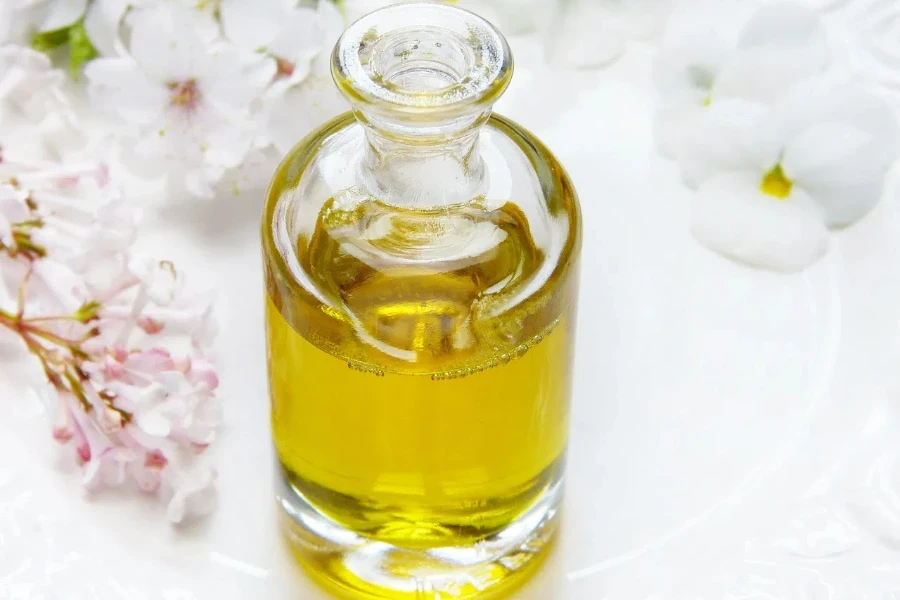The journey to healthy, thick hair is often full of obstacles. For many, rosemary oil is the solution to hair growth. What is rosemary oil? How does it work? We will take you through everything you need to know about the use of rosemary oil for hair growth. We will also consider how it helps with hair growth, its methods of application, the science behind it, and its potential side back and allow us to to understand more about rose.
Table of Contents:
– The science behind rosemary oil and hair growth
– How to use rosemary oil for optimal hair health
– The benefits of rosemary oil for your scalp and hair
– Considering the side effects and precautions
– Integrating rosemary oil into your hair care routine
The science behind rosemary oil and hair growth

Rosemary oil, an essential oil from the woody herb Rosmarinus officinalis, has been used as a medicinal product for centuries. More recently, science has started to reveal some of the secrets of how rosemary oil can support hair growth. For example, rosemary oil stimulates blood circulation to the scalp. This improves the supply of nutrients to hair follicles, which supports their growth. Rosemary oil has also been shown to suppress free radicals, which defend the hair against reactive oxygen species, thus preventing hair loss and greying.
Studies have also found that inhalation of rosemary oil can inhibit DHT, a form of testosterone that occurs when your body converts testosterone into a more potent antigen, thus leading to hair loss. By inhibiting this hormone, rosemary oil may prevent androgenetic alopecia, or pattern baldness, from developing. It also has an anti-inflammatory effect on the scalp, helping to create a healthier environment for your hair.
How to use rosemary oil for optimal hair health

There are many ways to work rosemary oil into your haircare routine, depending on your preference and need. One way is to take a few drops of rosemary oil and mix it with a carrier oil for your scalp such as coconut or jojoba oil – not only does this nourish your scalp, but it helps make the oil sink in more easily.
Or, another way is to add rosemary oil to your shampoo or conditioner. You get the extract’s benefits on a daily basis, without having to add any extra steps to your hair care routine. Try a rosemary oil hair mask, when you blend it with other natural ingredients such as honey or avocado, and indulge in some extra deep nourishment.
The benefits of rosemary oil for your scalp and hair

Aside from its proposed hair-growing action, the oil of rosemary can be beneficial for the scalp and hair because it has natural antimicrobial properties that can help in controlling dandruff and scalp inflammation, thus leading to a balanced scalp. Its ability to strengthen the hair follicles may also contribute to stronger, healthier hair strands.
The aromatic quality of the oil acts on the nervous system as a calming agent, turning ritual hair treatments into a kind of therapy. Long-term use of rosemary oil is said to increase the softness and sheen of hair, giving it a more vibrant aspect.
Considering the side effects and precautions

Although rosemary oil is regarded as generally safe for topical use, it’s worth bearing in mind that all things have the potential to cause harm given the right set of circumstances. Common side effects that have been linked to the use of rosemary oil are skin or scalp irritation, as well as reactions in more sensitive individuals prone to allergic reactions. It is also recommended that you perform a patch test before widespread application, especially given that rosemary oil is only safe for use on dry, clean skin.
Pregnant or breastfeeding women should speak with a medical provider before using rosemary oil in their hair care products, and people with high blood pressure or epilepsy should be cautious, since in some cases rosemary oil can make these conditions worse.
Integrating rosemary oil into your hair care routine

Using rosemary oil as part of your haircare routine will take some patience and persistence to establish – start slowly, so that you can track your scalp and your hair’s reaction, and consider integrating it with a balanced diet and hydration to fully support your hair’s health.
But remember, while rosemary oil did show promise for hair growth, it isn’t a stand-alone solution, but should be integrated into other hair care and hair-growth treatments for the best results.
Conclusion
Whether you are suffering from a bald patch or desire thicker locks, rosemary oil for hair growth is a natural, cost effective and relatively easy option. Understanding the benefits of rosemary oil, understanding how to use it and learning how to avoid the rare side effects of rosemary oil can help you in your journey to thicker, stronger hair. With patience and persistence, rosemary oil can prove to be a loyal ally on your path to healthy hair.




